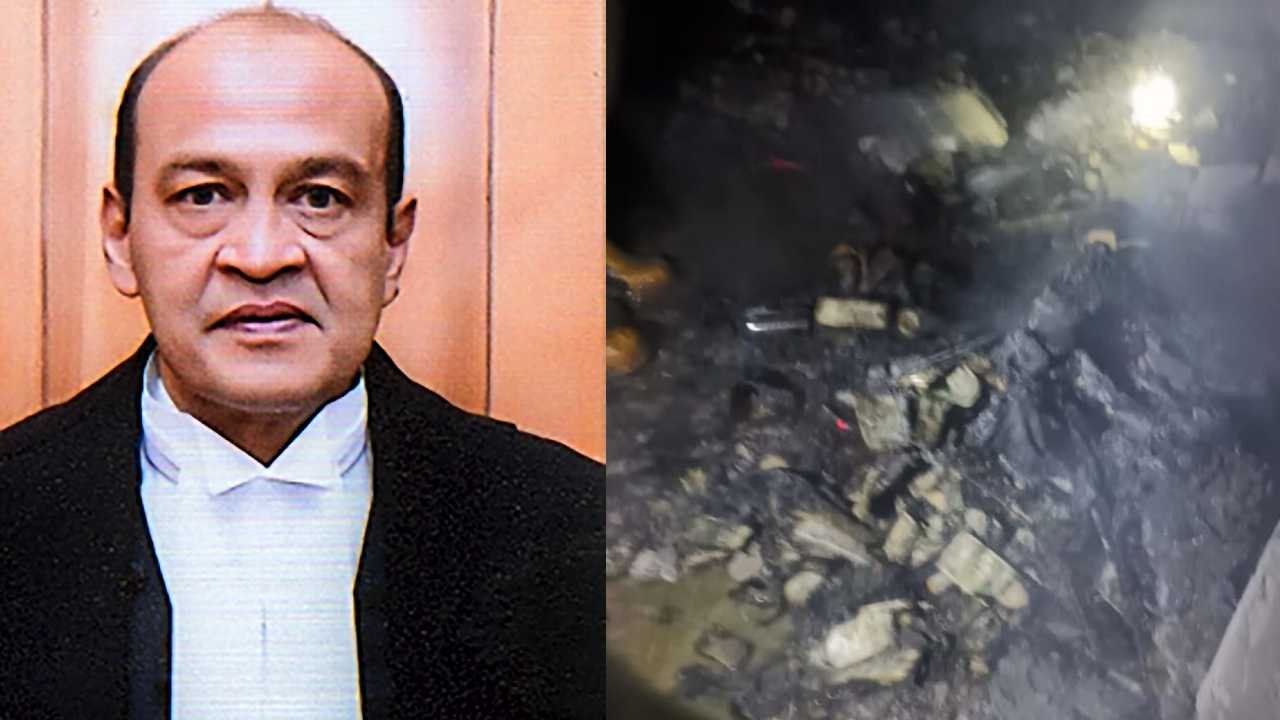Why No FIR or Criminal Charges Yet? The Justice Yashwant Varma Cash Case Explained
Editor: Chandan M
Published on: June 20, 2025, 11:39 a.m.

In a development that has stunned India’s legal and political circles, Justice Yashwant Varma, a sitting judge of the Delhi High Court (now transferred to the Allahabad High Court), is at the center of a high-stakes judicial scandal. In March, large quantities of cash were discovered in a storeroom attached to his official residence following a fire. Despite the gravity of the situation, no First Information Report (FIR) or criminal charges have been filed — raising the question: why not? The Discovery That Sparked It All On the night of March 14, a fire broke out in a storeroom at Justice Varma’s official bungalow in Delhi. As firefighters brought the blaze under control, they discovered stacks of high-denomination currency notes, both charred and intact. The fire department and witnesses on the scene reported visible piles of money, sparking immediate concerns of unaccounted wealth. What the Probe Found A Supreme Court-appointed three-judge inquiry panel launched a full investigation. Their findings included: The room was under the control of Justice Varma and his family, not public or communal property. No satisfactory explanation was offered by the judge about the cash or why he failed to report it. Justice Varma claimed the money may have been planted or that the fire was a conspiracy, but the panel found these arguments implausible. The panel called his actions serious misconduct and recommended impeachment. Why No FIR or Criminal Case? The answer lies in the constitutional protection granted to judges in India. 1. Judicial Immunity Under the Constitution Articles 124(4) and 217 specify that High Court and Supreme Court judges cannot be removed or prosecuted like regular citizens. They are protected from criminal proceedings while in office, to preserve judicial independence. 2. No FIR Without CJI's Permission The K. Veeraswami vs Union of India (1991) ruling by the Supreme Court states that no FIR can be registered against a sitting judge without prior approval from the Chief Justice of India (CJI). 3. Impeachment First, Then Prosecution Justice Varma remains a sitting judge. Therefore: Police and investigative agencies cannot file charges without constitutional clearance. Criminal proceedings can only begin after Parliament impeaches him or he resigns voluntarily. What Happens Now? The impeachment process has been initiated, with the central government reportedly drafting a motion. Justice Varma has been transferred to the Allahabad High Court and placed on leave. If Parliament votes to impeach, he loses judicial immunity, and criminal proceedings can begin. If he resigns before that, agencies like the CBI, ED, or Income Tax Department may act sooner. Double Standards? Legal experts and civil society voices have pointed out that any ordinary citizen in this situation would likely face: Immediate FIR and seizure Custodial interrogation Media exposure Prosecution under IPC, PMLA, and Income Tax laws In contrast, Justice Varma remains uncharged, protected by constitutional protocol, even as serious allegations persist. Conclusion The case highlights a critical tension in India’s democracy: how to balance judicial independence with accountability and transparency. While the law rightfully protects judges from frivolous attacks, it also raises questions when real misconduct emerges and due process appears delayed. Whether through impeachment or resignation, the resolution of this case will likely shape future debates on judicial reform and institutional trust in India.